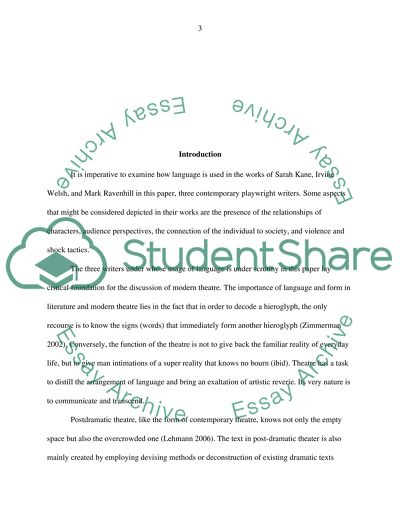Cite this document
(“Language in Contemporary English Drama Book Report/Review”, n.d.)
Retrieved from https://studentshare.org/english/1502739-language-in-contemporary-english-drama
Retrieved from https://studentshare.org/english/1502739-language-in-contemporary-english-drama
(Language in Contemporary English Drama Book Report/Review)
https://studentshare.org/english/1502739-language-in-contemporary-english-drama.
https://studentshare.org/english/1502739-language-in-contemporary-english-drama.
“Language in Contemporary English Drama Book Report/Review”, n.d. https://studentshare.org/english/1502739-language-in-contemporary-english-drama.


